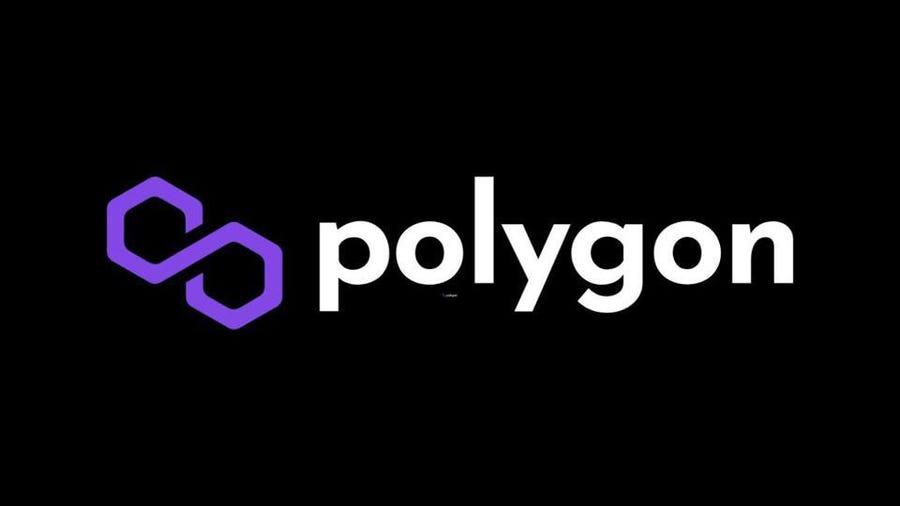Investors seeking substantial cryptocurrency gains have received a stern warning against placing undue trust in artificial intelligence (AI) trading bots.
Despite the rising popularity of these automated tools, the United States Commodity Futures Trading Commission (CFTC) has emphasized that AI cannot accurately predict the future.
In a recent press release, the CFTC cautioned crypto investors looking for lucrative returns in 2024 to exercise caution and avoid falling prey to exaggerated promises made by AI trading bots.
The agency specifically highlighted the alluring offers made by bots, trade signal algorithms, crypto-asset arbitrage algorithms, and other AI-driven technologies.
Melanie Devoe, director of the CFTC’s office of customer education and outreach, pointed out that the prevalence of social media platforms and influencers has made it easier for fraudsters to disseminate false information.
Devoe stressed the importance of remaining skeptical of hype surrounding AI in crypto trading, as it has become a conduit for malicious actors to exploit inexperienced investors.
Furthermore, the CFTC advised investors to conduct thorough background checks on companies or traders before entrusting their capital to trading bots or signal providers.
READ MORE: Polygon’s Meteoric Rise: Nearly Matches Ethereum’s User Base in 2023
The year 2023 witnessed a significant focus on AI-powered crypto trading bots within the industry.
In April, state regulators from Montana, Texas, and Alabama took legal action against YieldTrust.ai, an AI trading bot, alleging it was running a Ponzi scheme by making unsubstantiated claims of daily returns of up to 2.2%.
Additionally, blockchain analysis firm Arkham Intelligence highlighted a case in June where a crypto trading bot borrowed $200 million through a flash loan, only to secure a paltry profit of $3.24.
However, some major crypto exchanges, including Bitget, have been exploring the use of AI bots on their platforms.
Bitget CEO Gracy Chen explained that their Commodities Trading Advisor AI bot continually receives and analyzes historical strategy data, enabling self-learning and simplifying strategy creation for users.
As 2024 began, the question of whether Bitcoin could reach $100,000 this year arose. AI was mentioned as a potential catalyst, influencing market analysis, trading strategies, and broader technological advancements in blockchain.
While AI holds promise in the crypto world, investors are urged to exercise caution and not rely solely on AI trading bots for their financial decisions.
Coinbase, the popular cryptocurrency exchange, may encounter near-term volatility in its stock price, warns Oppenheimer analyst Owen Lau.
The primary reasons behind this anticipated turbulence are Coinbase’s ongoing lawsuit with the U.S. Securities and Exchange Commission (SEC) and the expected decline in Bitcoin’s price.
As of now, Coinbase’s stock is priced at $125, but its future appears uncertain due to regulatory challenges.
In a recent interview with Yahoo Finance, Lau highlighted the lingering regulatory uncertainty surrounding Coinbase.
The SEC has accused the exchange of violating security laws, and until a resolution is reached, Coinbase’s stock may experience fluctuations.
Lau explained, “There is still a regulatory overhang, we still don’t have clear regulations in the United States right now.”
Interestingly, Bloomberg litigation analyst Elliot Stein expressed optimism about Coinbase’s chances of a favorable outcome in its lawsuit against the SEC.
Stein predicts a 70% probability of Coinbase emerging unscathed from the legal battle.
READ MORE: US Government Plans to Sell $118 Million Worth of Seized Silk Road Bitcoin
Coinbase’s recent stock performance adds to the uncertainty. Over the past 30 days, the company’s stock price has declined by approximately 28%.
However, it has shown an overall gain of around 67% in the past three months.
This upward trend was driven by Bitcoin’s price surge towards the end of 2023, fueled by optimism surrounding the potential approval of a spot Bitcoin ETF by the U.S. SEC, which was granted on January 10th.
Despite this initial positive development, Bitcoin’s price has faced a setback, dropping by approximately 10.37% in the last two weeks following the SEC’s approval of spot Bitcoin exchange-traded funds.
At the time of writing, Bitcoin’s price stands at $41,863. Owen Lau believes that Bitcoin may continue to experience short-term price fluctuations until a significant catalyst emerges.
Adding to the challenges, JPMorgan recently downgraded Coinbase’s stock to an “underweight rating” on January 23rd.
The decision was influenced by the declining price of Bitcoin and the listing of spot Bitcoin ETF shares.
These factors have cast a shadow of uncertainty over Coinbase’s near-term future in the cryptocurrency market.
In conclusion, Coinbase’s stock price is likely to remain volatile in the coming months, with regulatory uncertainties and Bitcoin’s price fluctuations acting as key drivers of this instability.
Traders and investors will need to closely monitor developments in the ongoing lawsuit and the broader cryptocurrency market to make informed decisions.
United States lawmakers are rallying behind the urgent need for legislation to criminalize the production of deepfake images, spurred by the widespread circulation of explicit fake photos featuring Taylor Swift.
These fabricated images made their way onto various social media platforms, including X and Telegram, prompting a call for action.
U.S. Representative Joe Morelle took to X to express his vehement disapproval of the dissemination of these images, labeling it as appalling. He underscored the Preventing Deepfakes of Intimate Images Act, a legislative initiative he authored to establish non-consensual deepfakes as a federal offense, emphasizing the urgency of addressing this pressing issue.
Deepfakes employ artificial intelligence (AI) to manipulate videos by altering the appearance of individuals.
Currently, there are no federal laws specifically addressing the creation or sharing of deepfake images, but some lawmakers are now taking proactive steps to tackle this problem head-on.
Representative Yvette Clarke, also on X, pointed out that the Taylor Swift incident is not an isolated case. She emphasized that women have been enduring the repercussions of this technology for years, highlighting the accessibility and affordability of creating deepfakes with advancements in AI.
On a positive note, X stated in a press release that it is actively removing the fraudulent images and taking appropriate actions against the accounts responsible for their dissemination.
The platform assured the public that it is closely monitoring the situation, ready to promptly address any further violations and ensure the removal of such content.
In a parallel development, the United Kingdom made the sharing of deepfake pornography illegal as part of its Online Safety Act in 2023.
READ MORE: Blackberry Uncovers Cyber Attack Targeting Mexican Cryptocurrency Exchanges
A State of Deepfakes report from the same year revealed that a majority of deepfakes posted online involve pornography, with nearly 99% of victims being women.
The global concerns surrounding AI-generated content have escalated, with the World Economic Forum highlighting the adverse consequences in its 19th Global Risks Report.
This report underscores the intended and unintended negative impacts of AI advancements, including generative AI, on individuals, businesses, ecosystems, and economies.
Even Canada’s primary national intelligence agency, the Canadian Security Intelligence Service, has expressed alarm over disinformation campaigns utilizing AI-generated deepfakes on the internet.
On a broader scale, the United Nations, in a report dated June 12, recognized AI-generated media as a significant and pressing threat to information integrity, particularly on social media.
The U.N. stressed that the risk of online disinformation has surged due to rapid technological advancements, notably in generative artificial intelligence, with a special focus on the troubling proliferation of deepfakes.
Nigerian crypto analyst, Rume Ophi, has urged the Nigerian Securities and Exchange Commission (SEC) to reconsider its crypto licensing requirements, specifically the guidelines for virtual asset services providers (VASPs).
Ophi expressed his concerns in an interview with Cointelegraph, stating that the existing guidelines do not favor local crypto exchanges, and he believes that these exchanges should have been a priority when formulating the regulations.
According to the SEC’s current guidelines, all exchanges must obtain a VASP license by complying with the specified application processing requirements and paying the necessary registration and applicable fees.
However, Ophi pointed out that many local exchanges struggle to meet the minimum upfront capital requirement of 500 million naira ($556,620).
This financial burden could lead to a situation where primarily foreign exchanges dominate the Nigerian crypto market, instead of achieving a more balanced ecosystem.
Supporting Ophi’s perspective, Kue Barinor Paul, a Nigerian Web3 legal representative, emphasized during a discussion hosted by Ophi that Nigerian crypto exchanges and VASPs might need to consider merging to pool resources and meet the SEC’s license requirements.
Paul stressed the need for the Nigerian SEC to revise its licensing framework, as the current regulations seem to favor foreign exchanges over local ones.
READ MORE: Blackberry Uncovers Cyber Attack Targeting Mexican Cryptocurrency Exchanges
In May 2022, the Nigerian SEC released a 54-page document titled “New Rules on Issuance, Offering Platforms, and Custody of Digital Assets,” which aimed to create a framework for cryptocurrency service providers in Nigeria.
This document also outlined guidelines for how the country’s banking and financial institutions could engage with digital assets.
Ophi further highlighted the importance of the Nigerian National Assembly’s involvement in aligning the SEC’s licensing requirements with the current economic realities of the country.
Nigeria, being the largest economy in Africa, has shown significant awareness of cryptocurrencies, ranking second in crypto adoption worldwide, according to Chainalysis’ “2023 Cryptocurrency Geography Report.”
Despite this potential, the country has faced challenges in attracting foreign crypto investment, which Ophi attributes to the recent removal of the ban on financial institutions serving crypto exchanges.
Revising the licensing requirements may help unlock the full potential of the Nigerian crypto market and attract more investment.
The ongoing legal battle between Binance and the United States Securities and Exchange Commission (SEC) continues to escalate as court documents reveal disputes over evidence production and witness depositions.
The latest joint status report filed on January 25 sheds light on the contentious nature of this regulatory case.
The SEC asserts that there are crucial aspects of discovery related to BAM Trading Services, the parent company of Binance.US, that are still outstanding.
This dispute has arisen due to the SEC’s extensive requests for evidence, particularly concerning the custody and liquidity of assets held by Binance.US.
The regulator is keen to uncover any potential backdoor access that Binance.US might have had to control customer assets, akin to FTX.
In response, BAM Trading Services contends that they have fully adhered to the document production requirements set forth in the consent order and expedited recovery request.
They urge the court to acknowledge their compliance and to consider expedited discovery as complete for BAM.
They express the belief that the SEC’s Temporary Restraining Order (TRO) and its approach to expedited discovery have caused undue harm and burden over the past seven months.
READ MORE: Former Binance CEO’s Bid to Use $4.5 Billion Stake as Collateral for UAE Travel Denied by Court
The consent order, which outlines the scope of the SEC’s investigation, is another bone of contention. BAM argues that the SEC’s inquiry should be limited to confirming the safety and proper accounting of customer assets.
They accuse the SEC of overstepping by broadly investigating BAM’s custody policies, procedures, and practices, both past and present.
Furthermore, the document highlights ongoing disagreements about witness examinations. Specific requests for depositions of “BAM’s former CEO and CFO,” presumably Brian Shroder and Jasmine Lee, are mentioned.
BAM argues against additional depositions of current or former BAM personnel, citing the numerous depositions that have already taken place during expedited discovery.
Additionally, discussions regarding the examination of Binance co-founder Changpeng Zhao are underway. However, disputes persist regarding the scope, timing, location, and number of depositions related to Zhao.
Zhao’s resignation as CEO of Binance in November 2023 as part of a $4.3-billion settlement with U.S. regulators adds complexity to the case.
His sentencing is scheduled for February 23, 2024, while the next status report on the case is due by February 15.
Currently, Zhao is free on a $175-million bond in the United States and faces a potential prison sentence of up to 18 months. The legal clash between Binance and the SEC appears far from reaching a resolution.
The approval of spot Bitcoin exchange-traded funds (ETFs) by the United States Securities and Exchange Commission (SEC) on January 10 has raised concerns about potential misconceptions regarding cryptocurrency regulations.
Rostin Behnam, the chair of the Commodity Futures Trading Commission (CFTC), highlighted these worries in a keynote speech on January 26.
Behnam emphasized the risk of investors, both retail and institutional, misinterpreting the recent SEC decision as comprehensive regulatory oversight for Bitcoin and other cryptocurrencies.
Although spot Bitcoin ETFs can now provide exposure to the cryptocurrency, they are supervised by SEC-regulated stock exchanges.
However, Behnam pointed out that there is still a lack of regulatory oversight for the broader cash market of digital assets, which includes cryptocurrency exchanges.
He stated, “There remains nothing firmly in place to address the opaque and inconsistent practices in the cash markets for digital assets.”
This absence of regulatory clarity in the cash market has implications for the transparency of Bitcoin ETFs, as asset management firms acquire the underlying assets from this market.
Behnam expressed concerns about trade settlement, conflicts of interest, data reporting, cybersecurity, customer protections, transparency, and overall market integrity.
READ MORE: Zaki, Financial Scammer and PayFuture Owner, Wants Your Money
Behnam also criticized the concept of Bitcoin ETFs, describing them as speculative and volatile assets wrapped in a thin layer of indirect regulation and presented as new investment products.
The issue of cryptocurrency regulation has been a prominent topic within the U.S. government, driven by the demands of the crypto industry.
In September 2023, CFTC Commissioner Caroline Pham proposed a limited pilot program to address crypto regulation, warning that the U.S. might need to catch up with crypto-friendly jurisdictions if regulatory clarity is not established.
She suggested that this program could resemble regulatory sandboxes previously implemented at the state level.
Many anticipate that there may be increased regulatory clarity following the U.S. presidential election in November.
A survey conducted on January 2 by the Crypto Council for Innovation revealed that a candidate’s stance on digital assets was considered important by most individuals in the crypto industry when deciding their vote, indicating the growing significance of cryptocurrency regulation in the political landscape.
In 2023, Polygon, a Layer-2 scaling network built to enhance Ethereum’s capabilities, came tantalizingly close to matching Ethereum’s user base, according to blockchain analytics firm Flipside.
Polygon proudly accumulated 15.24 million users during the year, falling short by just 160,000 users compared to Ethereum’s 15.4 million.
Flipside’s criteria for an acquired user was someone who conducted at least two transactions on a specific blockchain, with at least one transaction occurring in 2023.
Notably, Polygon led the race during the initial half of 2023 but relinquished its lead to Ethereum in the latter half.
Flipside shed light on Polygon’s remarkable start, amassing a whopping 2.8 million acquired users in January alone, accounting for more than 40% of the network’s total users in 2023.
Despite experiencing a steady decline in monthly user acquisition throughout the year, Polygon still performed favorably when compared to other networks.
Bitcoin secured the third position with 10.65 million acquired users, while Solana and Arbitrum occupied the fourth and fifth spots, respectively.
In total, the eight monitored blockchains recorded a sum of 62 million acquired users, encompassing platforms like Optimism, Avalanche, and Base.
READ MORE: Surge in Ethereum Execution Client Diversity Raises Decentralization Hopes
Flipside observed that user acquisition reached its zenith in May, after which it gradually receded.
Notably, the surge in acquired users began in March, coinciding with the collapse of Silicon Valley Bank.
This event potentially eroded confidence in centralized entities and prompted a shift towards decentralized custody alternatives, as suggested by Flipside.
The report also highlighted Base’s journey in 2023. Although it exhibited a strong start following its launch in August, its user volume tapered off in the closing months of the year.
Flipside attributed this decline to renewed enthusiasm for more established chains toward the end of the year, as these networks offered more robust and diverse app ecosystems.
Nevertheless, Flipside expressed optimism about Base’s future growth, speculating that the next bull run could be beneficial, especially given Coinbase’s efforts to act as a gateway for new crypto users.
In conclusion, Polygon’s remarkable performance in 2023, almost rivaling Ethereum in terms of user acquisition, underscores the growing interest in Layer-2 scaling solutions and the broader cryptocurrency ecosystem.
Investor Chris Burniske has made a bold prediction regarding the future of Bitcoin, foreseeing months of struggle ahead for the cryptocurrency as it attempts to recover its lost ground and challenge previous highs.
In a recent post on X (formerly Twitter), Burniske, who currently serves as a partner at the crypto venture capital firm Placeholder, suggested that the price of BTC could potentially drop to a minimum of $30,000.
Burniske’s outlook aligns with a growing number of crypto industry figures who are also anticipating further declines in Bitcoin’s price.
However, Burniske’s floor target is notably lower than some of his peers, indicating a more bearish stance.
He emphasized that Bitcoin may experience a period of decline, possibly testing levels in the mid-to-high $20,000s before any significant recovery toward previous all-time highs.
He cautioned investors about the potential volatility in the path ahead, including possible fakeouts, and suggested that this extended downturn could take months to play out.
Burniske’s forecast extends beyond the upcoming block subsidy halving in April, indicating that the recovery may be a longer-term endeavor.
While Bitcoin is expected to face challenges, Burniske also anticipates a more challenging situation for altcoins, warning investors to exercise patience during this period of uncertainty.
READ MORE: Federal Court of Canada Rules Emergency Crypto Law Used Against Truckers Unconstitutional
He stressed that other cryptocurrencies may experience greater percentage declines compared to Bitcoin.
Despite his bearish outlook, Burniske made it clear that he was not inclined to change his long BTC position, expressing confidence in Bitcoin’s long-term potential.
This perspective on Bitcoin’s future aligns with the broader sentiment in the crypto industry, where several factors are influencing predictions of continued weakness in BTC’s price.
These factors include macroeconomic influences tied to U.S. financial policies and global liquidity trends, which have a significant impact on crypto markets.
Other industry figures, such as Arthur Hayes and notorious trader Il Capo of Crypto, have also made bearish predictions about Bitcoin’s price, with some suggesting the possibility of a dip to $30,000 or even $12,000.
However, some analysts, like Il Capo of Crypto, see a temporary reprieve for Bitcoin bulls and anticipate a potential rebound if key levels are reclaimed.
As of the time of writing, BTC/USD was trading near $40,000, but the future remains uncertain, with investors closely monitoring developments in the crypto market.
The Algorand Foundation made a public announcement on X (formerly known as Twitter), revealing that their CEO, Staci Warden, had fallen victim to a security breach on her X account.
In response to this incident, they urged their community members to exercise caution by refraining from clicking on any suspicious links or engaging with direct messages.
The breach came to light on January 26, when a post from Warden’s X account surfaced, containing offensive language and racial slurs while also disparaging the Algorand community.
These derogatory remarks strongly suggested that an unauthorized party had taken control of her account, Stealth Tax News reported.
Furthermore, the perpetrator of the breach encouraged the community to divest from Algorand and instead invest in Ether.
Following this provocative post, the hacker continued to share satirical content, fabricating a story wherein they claimed that Justin Sun, the founder of Tron, would elevate Algorand to unprecedented heights.
According to the hacker, all that was needed was to grant Sun “total control” over Algorand and allow him to mint any token back to True USD (TUSD).
READ MORE: Surge in Ethereum Execution Client Diversity Raises Decentralization Hopes
This fabricated narrative was presented with tongue-in-cheek humor, insinuating that they had readily accepted this proposal, which would supposedly peg Algorand to the US dollar, ushering in a new era of digital commerce.
The hacker also humorously suggested that Sun’s projects would precipitate the next “major financial collapse in crypto.”
Aside from these fabricated tales, the hacker made various changes to Warden’s X account.
They shared music, modified her profile bio, and alleged that the CEO had siphoned off six figures from the Algorand community while falsely gaslighting them into believing it was a hacking incident.
The hacker even went so far as to change Warden’s bio to claim that she had left the Algorand Foundation and had taken up a new career as a “semi-professional pole dancer.”
Surprisingly, some members of the Algorand community seemed amused by the hacker’s antics.
Some even responded to the post about Justin Sun by suggesting that Algorand should hire the hacker or allow them to maintain control of the account.
Meanwhile, others seized the opportunity to criticize Warden, with one crypto enthusiast suggesting that the hacker would make a “better CEO” for the Algorand Foundation.
Another individual humorously proposed that Warden should consider applying for an internship at the United States Securities and Exchange Commission, given their own recent security breach on X.
According to analysts at Cantor Fitzgerald, eleven of the largest publicly traded Bitcoin miners may face profitability challenges if the price of Bitcoin (BTC) does not experience a significant increase following the upcoming halving event.
CleanSpark’s executive chairman and co-founder, Matthew Shultz, shared this research on January 25th, highlighting concerns for miners like Marathon Digital, Riot Platforms, and Core Scientific, as their mining operations may no longer cover their costs.
While Bitcoin miner revenues are closely tied to BTC’s price, Luxor’s executive emphasized that miners often employ strategies to mitigate potential losses from price volatility.
Nevertheless, Cantor Fitzgerald’s assessment suggests that, at the current BTC price, UK-based Argo Blockchain and Florida-based Hut 8 could be the most vulnerable post-halving, with an “all in” cost-per-coin rate of $62,276 and $60,360, respectively.
Hut 8 reported in its January 5th update that it held 9,195 BTC, worth $377 million at current prices.
Cantor analysts only expected Singapore-based Bitdeer and US mining firm CleanSpark to maintain profitability following the halving, assuming an average BTC price of $40,000 and no drastic changes in hash rate.
The “all in per coin” metric takes into account all costs incurred in producing a single Bitcoin, including electricity and hosting fees.
READ MORE: Surge in Ethereum Execution Client Diversity Raises Decentralization Hopes
The Bitcoin halving, scheduled for April, involves cutting mining rewards in half, potentially impacting miners with high operational costs.
If BTC’s price does not cover these costs, their situation could worsen.
However, many market experts believe that the halving could drive a long-term increase in BTC’s price, which would alleviate this concern.
Dan Rosen, associate director of derivatives at Bitcoin miner Luxor, explained that miners often employ various strategies to hedge against BTC price fluctuations, such as purchasing derivatives products like hash rate futures contracts and BTC-related options.
Cointelegraph attempted to contact several Bitcoin miners mentioned in the report for comment, but no immediate responses were received.
The fate of these miners will depend on BTC’s post-halving price performance and their ability to manage operational costs in an evolving market.












